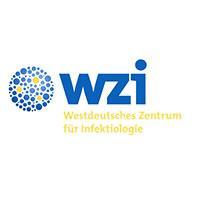Trichinosis is a parasitic disease that can be contracted by eating undercooked pork. The condition is caused by parasites 2-4 mm in size, which settle in the intestines and muscles, surround themselves with a capsule, and cause allergic reactions and fever. In severe cases, the disease may lead to severe complications and death as a result of ulcerative necrotic lesions of the intestine, bleeding, or heart failure. The disease is successfully treated in Germany, and therapy is quick and safe.
Content
- How dangerous is the disease?
- Diagnostics
- How is the disease treated in Germany?
Trichinosis is treated with antiparasitic agents. Anti-inflammatory drugs, antihistamines, and glucocorticoids can be used as symptomatic and pathogenetic treatment.
You can undergo your treatment at the University Hospitals in Ulm, Duesseldorf, or Essen.
The Booking Health company will take care of all the arrangements for your trip. Our specialists will select a hospital and a doctor, quickly make an appointment, help you to apply for a visa, take care of your flights and accommodation, provide interpreting services, and control financial issues. During treatment, you can contact your personal medical coordinator with any questions you may have 24/7.
How dangerous is the disease?
The disease is not only unpleasant but also life-threatening. Parasite larvae from the intestine penetrate into the bloodstream and spread throughout the body. They enter the muscles and can live there for up to 25 years. As a result, a person develops muscle weakness, muscle pain, and contractures (mobility limitation) may also occur.
Other possible complications of trichinosis are as follows:
- liver lesions;
- severe heart failure with a fatal outcome;
- intestinal lesions, up to necrosis and perforation of the wall of the intestine;
- gastrointestinal bleeding occurs as early as 1-2 weeks after infection;
- myocarditis and pneumonitis (inflammation of the heart and lungs) develop at 3-4 weeks of the disease;
- allergic vasculitis (inflammation of the blood vessels);
- lesions of the central nervous system: meningoencephalitis or encephalomyelitis.
Diagnostics
The main methods of diagnosing the disease are as follows:
- muscle biopsy reveals spiral larvae in the material obtained;
- ELISA is a Western blot screening test that detects antibodies to a parasite.
Both methods are not without drawbacks. Therefore, when making a diagnosis, doctors in German medical centers also consider the clinical picture of the disease and anamnesis data (cases of eating pork without proper heat treatment).
A muscle biopsy is an invasive diagnostic method. In addition, in the early stages after the larvae enter the muscles, they are not yet spiraled, so they can be confused with muscle fibers.
Antibody testing in the early stages can be false negative. 100% sensitivity is achieved only 2 months after infection, while many complications develop at 2-4 weeks. However, most patients have antibodies in sufficient quantities for the detection of the disease as early as 2 weeks after infection.
The main method of confirming the diagnosis in German hospitals is an antibody test. A muscle biopsy is rarely performed.
How is the disease treated in Germany?
The basic principles of the treatment of trichinosis in Germany are the following:
- therapy begins as early as possible, optimally immediately after the establishment of a diagnosis;
- the basis of treatment is anthelmintics, which destroy the parasite;
- the bioavailability of some anthelmintics differs in various patients, so an individual dosage adjustment may sometimes be required;
- children and pregnant women are treated with other drugs to avoid the development of complications;
- some patients require additional glucocorticoid therapy to reduce the severity of symptoms associated with the inflammatory response.
Treatment includes etiotropic, pathogenetic and symptomatic therapy. In any case, it is conservative. Doctors do not perform any surgical procedures for trichinosis.
Etiotropic therapy is the most important. It allows healthcare specialists to destroy helminths. Typically, patients receive one antiparasitic drug. There are several remedies that work well for trichinosis. German doctors select the drug individually, considering the patient's age, the severity of the disease, concomitant parasitic infestations, and possible contraindications to prescribing medicines.
As a rule, in the first 2-3 days of therapy, the symptoms of trichinosis become even more severe. This is due to the mass death of larvae. During this period, patients receive pathogenetic and symptomatic treatment. These are usually anti-inflammatory drugs and antihistamines. In severe cases, glucocorticoid therapy may be required.
You are welcome to use the services of the Booking Health company to undergo your treatment and rehabilitation in Germany. On our website, you can find the cost of treatment and make your appointment at a hospital at the best price. Our staff will help you to choose the most suitable clinics in Germany and organize your trip.
Authors:
The article was edited by medical experts, board-certified doctors Dr. Nadezhda Ivanisova and Dr. Sergey Pashchenko. For the treatment of the conditions referred to in the article, you must consult a doctor; the information in the article is not intended for self-medication!
Sources:
Verywell Health
Centers for Disease Control and Prevention
MedicineNet



















